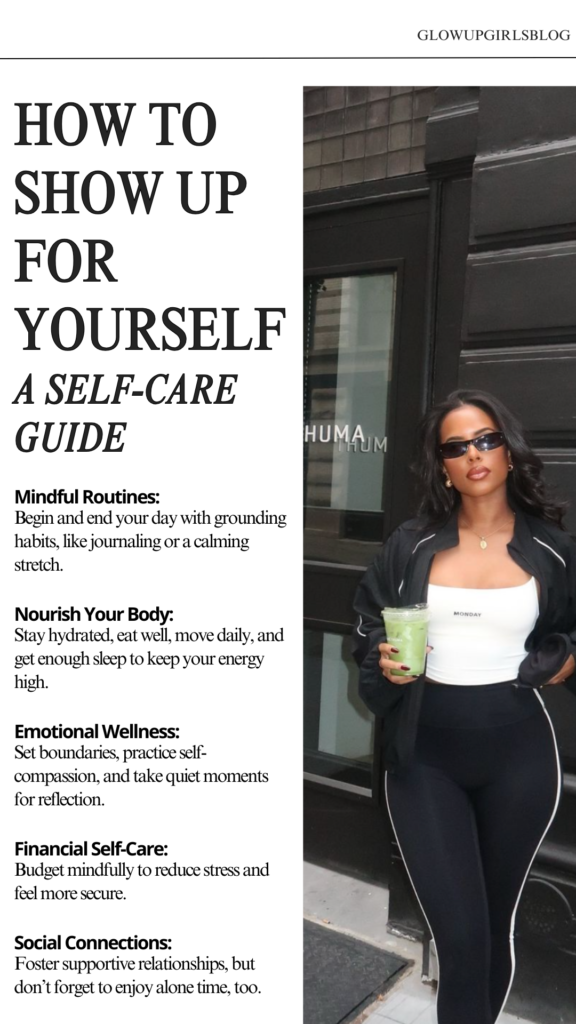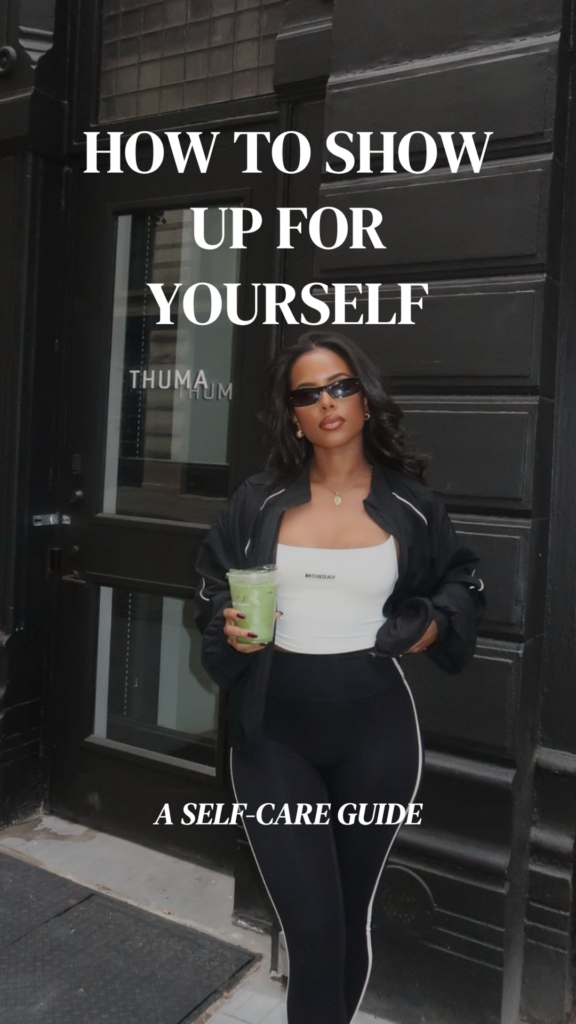Physical Address
304 North Cardinal St.
Dorchester Center, MA 02124
Physical Address
304 North Cardinal St.
Dorchester Center, MA 02124

Let’s be real—taking care of yourself isn’t just about bubble baths and face masks. True self-care is about making choices every day that support your well-being, inside and out. It’s about showing up for yourself, setting boundaries, and making sure your needs don’t come last. When you prioritize yourself, you become stronger, more confident, and better equipped to live a fulfilling life.
So, if you’re ready to start prioritizing YOU, here’s your guide to self-care that actually makes a difference.
Self-care is more than just eating well and getting enough sleep (though those things definitely matter). It’s about nurturing your mind, body, and soul. It’s recognizing what drains you and what fills your cup—and making more room for the things that bring you peace.
A lot of people struggle with self-care because they were taught to put others first. But the truth is, you can’t pour from an empty cup. Taking care of yourself isn’t selfish—it’s necessary.
When you make self-care a priority, you’re not just improving your mood—you’re protecting your mental, emotional, and physical health. Research shows that self-care can help reduce stress, boost your immune system, and even lower inflammation in the body.
It’s not a luxury. It’s a non-negotiable.
The key to sustainable self-care is finding what actually works for your lifestyle. It doesn’t have to be time-consuming or expensive—it just needs to be intentional.
How you start your day sets the tone for everything that follows. A solid morning routine can help you feel more centered, productive, and in control. Try adding one or more of these practices to your mornings:
Just like mornings, your evenings deserve intention, too. A calming nighttime routine helps your body and mind reset for the next day. Try:
Gratitude practice – Reflecting on the positives from your day can improve your mindset over time.
Tech-free time – Put your phone away at least 30 minutes before bed.
A relaxing bath or skincare routine – Something small to signal to your body that it’s time to wind down.
If you’re constantly feeling drained, chances are your boundaries need some work. Setting boundaries means protecting your time, energy, and mental space. And no, you don’t owe anyone an explanation.
The more you respect your own boundaries, the more others will, too.

Taking care of your emotions is just as important as taking care of your body. If you’re constantly ignoring your feelings, they’ll find a way to catch up with you—usually in the form of stress, anxiety, or burnout.
Your emotions deserve space. Give yourself permission to feel, process, and heal.
The best self-care routine is the one you can actually stick to. Here’s how to make it last:
Self-care isn’t just about what you do—it’s about how you treat yourself. The goal isn’t perfection; it’s consistency.

Who you surround yourself with matters. Your social circle can either drain you or uplift you. Make sure you’re prioritizing relationships that make you feel valued and supported.
At the same time, remember that alone time is just as important. Finding a balance between socializing and solitude is key.
Self-care isn’t just about spa days—it’s also about making sure your mind and finances are in check.
Money stress is real. A 2023 Bankrate survey found that 52% of U.S. adults say money affects their mental health. Taking control of your finances is an underrated form of self-care.
Financial stress can take a serious toll on your mental health, so managing your money wisely is a form of self-care in itself.
Showing up for yourself isn’t about grand gestures—it’s about the small, daily choices that add up over time. Whether it’s setting boundaries, taking care of your mental health, or simply drinking more water, every act of self-care is a step toward a healthier, happier you.
The best version of you starts with the way you treat yourself. So go ahead—prioritize yourself unapologetically. You deserve it.